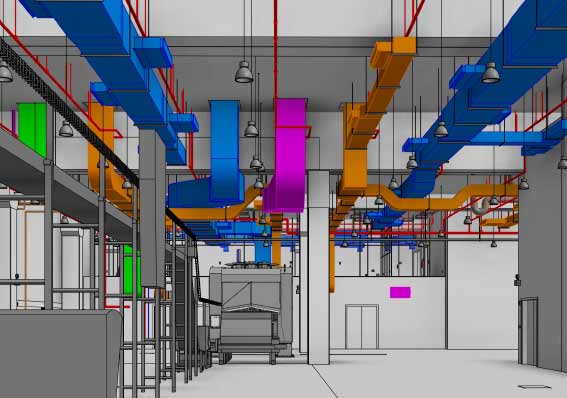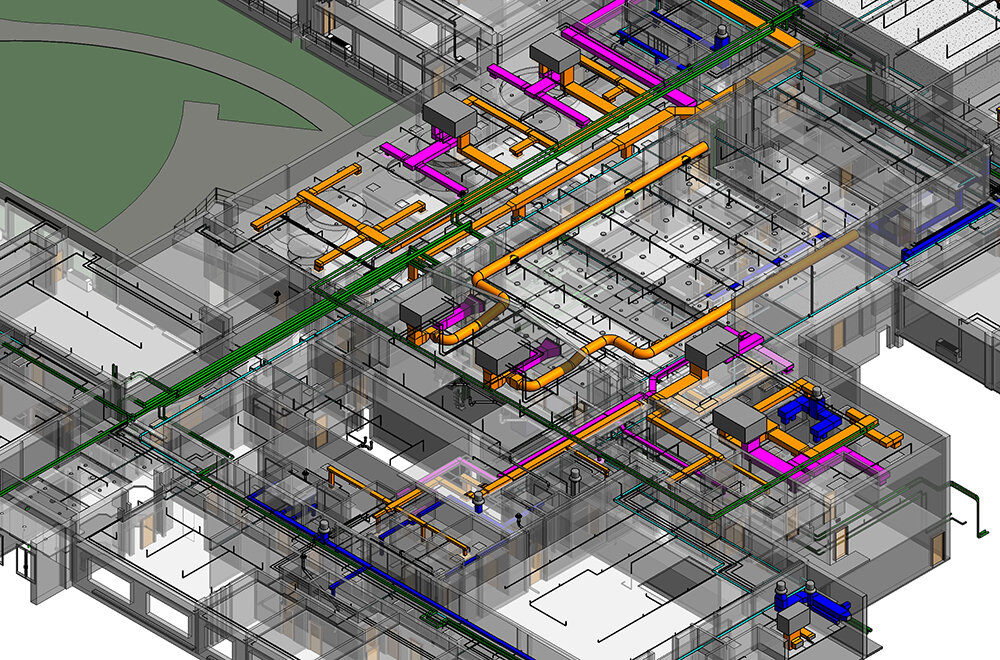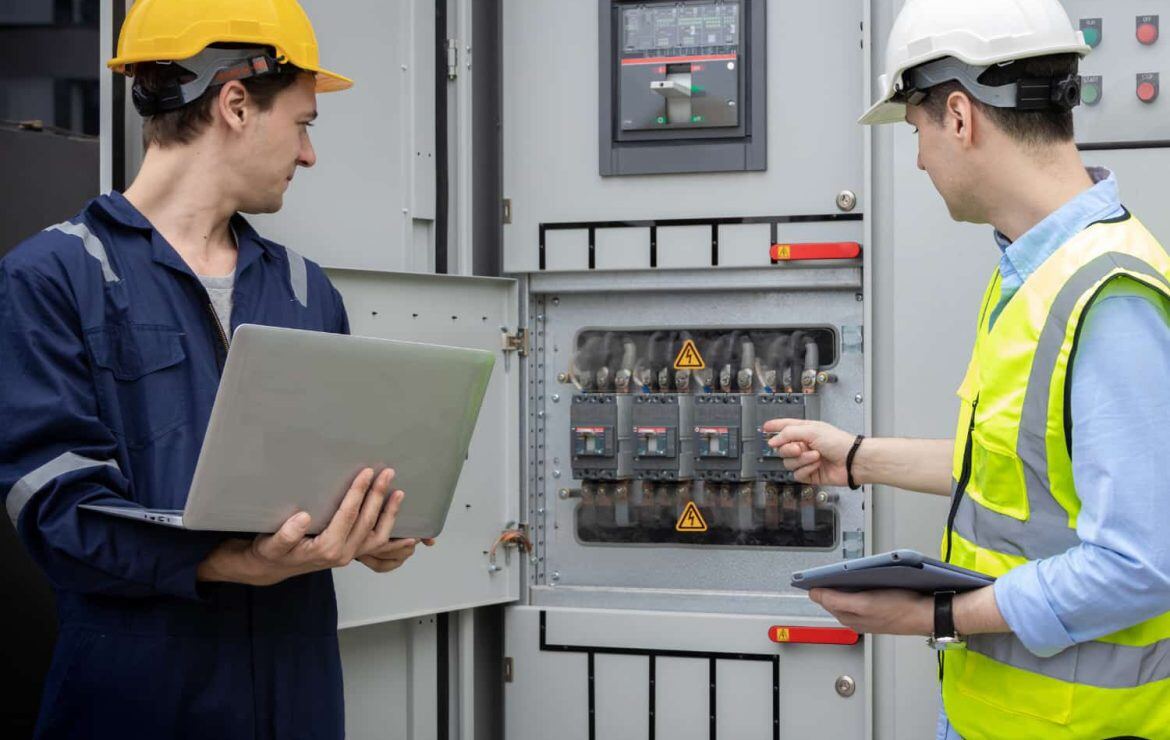
Modern buildings rely extensively on mechanical, electrical, and plumbing (MEP) engineering. MEP engineers ensure that all buildings' mechanical, electrical, and plumbing systems are safe and effective. It is essential that you have an excellent grasp of both fundamental and advanced subjects when preparing for an interview regarding an MEP engineer. To help you ace your interview. This blog will explore the best MEP engineer interview questions and answers for 2025. These questions have been organised into general, experience-based, in-depth, and scenario-specific categories for complete preparation.
This blog will walk you through 50 key questions that cover fundamental concepts and advanced technical problems. We will cover issues relevant to different roles, like common interview questions for MEP engineers, mechanical engineer interview questions for freshers, and mep electrical engineer interview questions. You will be prepared for any interview if you are proficient in these. In addition, you will learn how to answer to technical interview questions for MEP engineers, ensuring an extensive preparation strategy.
General Questions
Q1: What is MEP Engineering?
Ans: MEP engineering is the procedure of planning, constructing, and maintaining a building's plumbing, electrical, and mechanical systems that ensure its comfort, safety, and functionality.

Q2: Why did you choose MEP engineering as your career?
Ans: I selected MEP engineering because of my keen interest in technology, problem-solving, and the opportunity to help create sustainable, valuable buildings.
Q3: What are the key responsibilities of an MEP Engineer?
Ans: To guarantee adherence to safety standards and construction requirements, MEP engineers are responsible for arranging, planning, and supervising the installation of mechanical, electrical, and plumbing systems.
Q4: Can you explain the role of coordination in MEP projects?
Ans: By avoiding disagreements during installation and ensuring efficiency, coordination ensures that plumbing, electrical, and mechanical systems connect perfectly.
Q5: What tools or software do you use in your work?
Ans: I regularly use AutoCAD, Revit MEP, Navisworks, and MS Project for design and project management.
Questions About Experience and Background
Q6: Describe a challenging MEP project you’ve worked on.
Ans: I once worked on a hospital project where installing electrical conduits and HVAC ducts was difficult due to space limitations. We addressed the issue by adjusting layouts in Revit and having coordination meetings.
Q7: How do you stay updated with industry trends?
Ans: To keep up with developing technology and industry best practices, I engage with forums like IEEE and ASHRAE, attend workshops, and subscribe to professional publications.
Q8: What experience do you have with green building systems?
Ans: I have worked on LEED-certified sites with a special focus on water-saving plumbing fixtures, renewable energy integration, and energy-efficient HVAC systems.
Q9: Have you worked with BIM tools? How did they help?
Ans: Yes, in order to understand designs and resolve challenges ahead of construction, I make use of Revit MEP and Navisworks for 3D modelling and clash detection.
Q10: Describe your experience with electrical load calculations.
Ans: I calculate loads using standards like the NEC and equipment specifications to ensure accurate electrical component sizing.
Also Read: Top 10 MEP Engineering Courses in India 2025
In-Depth Questions
Q11: Explain the process of designing an HVAC system.
Ans: Calculating load demands, choosing equipment, developing ductwork layouts, and ensuring ASHRAE standards have been followed are all part of it.

Q12: How do you size a plumbing system for a commercial building?
Ans: codes involving IPC or UPC are used to evaluate pipe material parameters, water consumption, and pressure requirements.
Q13: What is the importance of short-circuit analysis?
Ans: It ensures electrical systems can effectively handle fault currents, lowering risks and avoiding equipment damage.
Q14: How do you handle project delays in MEP engineering?
Ans: Timetables can be modified without compromising quality by understanding the reasons behind the changes, reallocating resources, and working with customers.
Q15: What are the critical factors in designing a fire protection system?
Ans: Commitment to NFPA guidelines, proper sprinkler positioning, and ensuring sufficient water flow and pressure.
MEP Engineer Interview Questions With Example Answers
Q16: How do you prioritise tasks in a complex project?
Ans: I split tasks, schedule them according to their due dates and requirements, and frequently check my progress using project management software like Microsoft Projects.
Q17: Describe your approach to energy efficiency in building design.
Ans: Unlike renewable energy sources like solar panels, I concentrate on smart controls, LED lighting, and energy-efficient HVAC systems.
Q18: Can you provide an example of conflict resolution in an MEP project?
Ans: Conflicting pipe and duct routes have caused delays in one project. I solved the problem, led a coordination meeting, and used Navisworks to change the layout.
Q19: What measures do you take to ensure safety during installation?
Ans: I perform regular safety audits, guarantee that OSHA regulations are followed, and train staff.
Q20: How do you validate the performance of installed systems?
Ans: To ensure proper functionality, commissioning, performance testing, and evaluation of outcomes with design specifications are used.
Also Read: 10 Best MEP Courses in Mumbai for Beginners & Professionals
Technical Interview Questions for MEP Engineer
Q21: Explain the difference between single-phase and three-phase power.
Ans: Three-phase electrical power, which provides more efficiency and capacity, can be used for commercial and industrial purposes, while single-phase power is used for residential uses with lower loads.
Q22: What are the common types of HVAC systems?
Ans: Split systems, packaged systems, ductless systems, and central air conditioning systems.
Q23: How do you calculate static pressure in an HVAC system?
Ans: As pressure builds up, it reduces in all elements, including the ductwork, coils, and filters.
Q24: What is the power factor, and why is it important?
Ans: The power factor calculates the effectiveness of electrical power use. Maintaining a high power factor improves system performance and decreases energy losses.
Q25: How do you design a lighting system?
Ans: We need to ensure ideal lighting by considering factors like positioning, energy, the economy, and brightness.
Common Interview Questions for MEP Planning Engineer
Q26: How do you develop an MEP project schedule?
Ans: Software like Primavera or MS Project can identify milestones, break down tasks, and allocate resources and time.
Q27: What challenges do you face in planning MEP systems?
Ans: working together across several disciplines and finding the right balance between financial constraints and design efficiency.
Q28: How do you manage subcontractors?
Ans: Establish specific objectives, conduct regular progress assessments, and ensure safety and quality standards are followed.
Q29: How do you handle material procurement?
Ans: To avoid project delays, prepare thorough material lists, negotiate with suppliers, and ensure delivery on schedule.
Q30: What tools do you use for project tracking?
Ans: To maintain close tabs on schedules and budgets and to utilise resources, Primavera, MS Project, and personalised dashboards are used.
Mechanical Engineer Interview Questions for Fresher
Q31: What is the difference between chilled water and condenser water systems?
Ans: Condenser water systems remove heat from refrigeration cycles, while chilled water systems cool air.
Q32: What is the role of a heat exchanger?
Ans: This method moves heat between two fluids without mixing them and is frequently employed in industrial and HVAC systems.
Q33: How does a cooling tower work?
Ans: The evaporation process reduces water temperature to the point that it can be repeatedly used in manufacturing processes or HVAC systems.
Q34: What are the types of compressors used in HVAC?
Ans: Reciprocating, rotary, screw, and centrifugal compressors.
Q35: Explain the concept of CFM in HVAC.
Ans: The airflow rate in ventilation systems can be measured using the abbreviation CFM, which stands for cubic feet per minute.
Additional Technical Questions
Q36: What is a VFD, and where is it used?
Ans: A variable frequency drive (VFD) reduces energy use in HVAC systems by adjusting motor speed.
Q37: How do you prevent water hammers in plumbing systems?
Ans: alongside the setting up pressure-reducing valves, water hammer arrestors, or air chambers.
Q38: What is earthing, and why is it essential?
Ans: By providing fault currents with a path, earthing promotes safety by avoiding electric shocks.
Q39: What is the significance of a circuit breaker?
Ans: Limiting the flow protects electrical circuits against overcurrent or short circuits.
Q40: How do you calculate the HVAC load for a room?
Ans: By using software or traditional methods to analyse variables such as room size, insulating material, occupancy, and heat-generating equipment.
Advanced Questions
Q41: What are the advantages of using modular MEP systems?
Ans: Modular ideas provide design flexibility, improve quality, and reduce installation delays.
Q42: How do you design a standby power system?
Ans: recognising crucial loads, selecting suitable generators, and then ensuring the transfer goes properly with ATS.
Q43:What is a ductless HVAC system?
Ans: It is a system consisting of indoor and outdoor units that heat and cool particular zones without requiring ducts.
Q44: How do you ensure compliance with building codes?
Ans: By interacting with regulatory bodies, conducting regular audits, and keeping up with codes.
Q45: Explain the concept of thermal comfort.
Ans: I assure myself of this by developing and putting in place HVAC systems that maintain ideal environmental conditions.
Scenario-Based Questions
Q46: How would you handle a design failure during installation?
Ans: Find the source, include the right people, and update the design according to the project's requirements.
Q47: What would you do if an MEP system exceeded the project budget?
Ans: To cut expenses, recommend affordable substitutes, bargain with suppliers, and improve the design.
Q48: How do you manage clashes in MEP coordination?
Ans: Make use of BIM technologies to find issues and resolve them through team talks and changes to the design.
Q49: What steps would you take to integrate renewable energy into an existing building?
Ans: Evaluate energy needs, explore renewable energy sources, and upgrade systems with the lowest possible level of disturbance.
Q50: How do you ensure quality control in MEP installations?
Ans: through third-party testing, standard regulation, and regular assessments.
Conclusion
If you want to prepare for MEP engineer interviews, you must possess a solid understanding of both industry-specific applications and fundamental ideas. This overview of the most effective MEP engineer interview questions and answers will help you prepare for the types of questions you might be asked.
Remember that your ability to demonstrate technical knowledge, problem-solving skills, and real-world experience can often decide your success in an interview. You can leave an excellent first impression on potential hiring managers by carefully evaluating these questions and customising your responses to highlight your expertise.
Visit Novatr for more details on MEP Courses and career development. There, you can get expert guidance that fits your needs.
Was this content helpful to you

TABLE OF CONTENTS
- General Questions
- Questions About Experience and Background
- In-Depth Questions
- MEP Engineer Interview Questions With Example Answers
- Technical Interview Questions for MEP Engineer
- Common Interview Questions for MEP Planning Engineer
- Mechanical Engineer Interview Questions for Fresher
- Additional Technical Questions
- Advanced Questions
- Scenario-Based Questions
- Conclusion



.jpeg)



